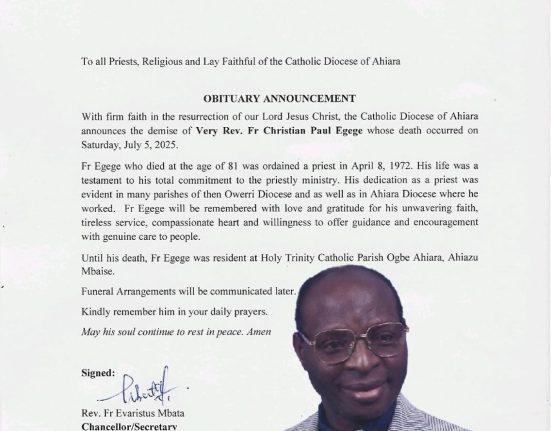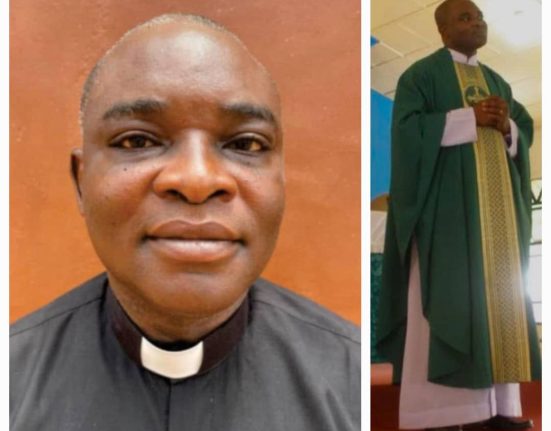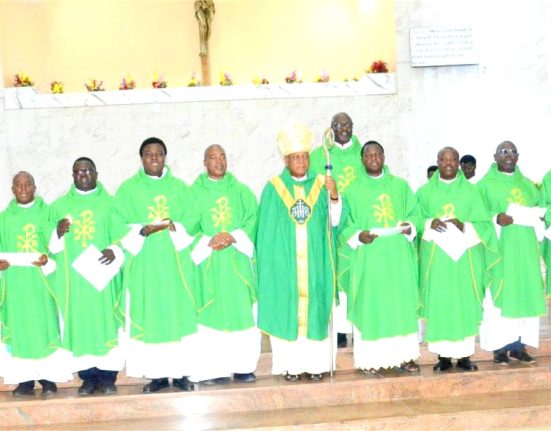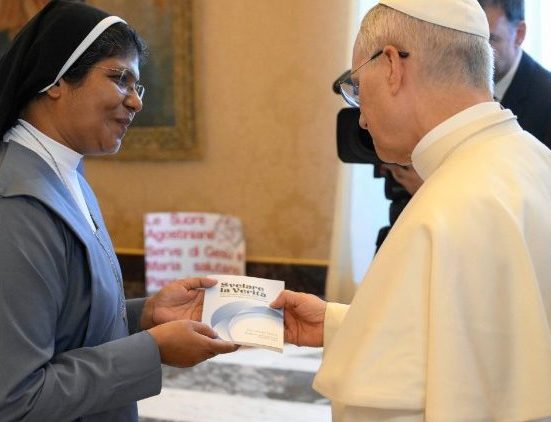Welcome my brothers and sisters in Christ to today’s commemoration of the Feast of All Saints. This Feast was instituted in the Eastern Church during the 4th century for the purpose or remembering all the martyrs of the early Church. Gradually, it developed to also include the non-martyrs. As such, it can be said that the purpose of this Feast in the Holy Catholic Church serves to commemorate all of our brothers and sisters in Christ, known and unknown, who have moved on to their eternal glory

Why is it necessary to celebrate the feast of all saints? All year round we are celebrating feasts of saints: Thomas Aquinas, January 28; Augustine of Hippo, August 28; Theresa of Lisieux, October 1, etc. Why then is it necessary to set apart a day to celebrate the feast of all saints? I can think of two important reasons..
- Beside the handful of saints whose feast days we celebrate on specific days in the year, there are countless other saints and martyrs, men, women and children united with God in the heavenly glory that we do not celebrate. Many of these would be our own parents and grand-parents who were heroic women and men of faith. Today we keep their honourable memory. In many ways, therefore, today’s feast can be called the feast of the Unknown Saint, in line with the tradition of the Unknown Soldier. We celebrate what the first reading calls “a great multitude that no one could count, from every nation, from all tribes and peoples and languages, standing before the throne and before the Lamb, robed in white, with palm branches in their hands” (Rev 7:9).
- This celebration gives us a quick look into our eternal destiny. The saints we celebrate were men and women like us. Where we are now they used to be, and where they are now we hope to be someday. As Christians we know that a person’s life story is not limited to what happens to them between the day they are born and the day they die. Our story starts before we are born, at our conception, and goes beyond the day we die, to all eternity. That is why we do not simply forget people after they die. Didn’t St Theresa of Lisieux say that she would spend eternity doing more good on earth? In our mortal eyes she is dead and gone. But in the eyes of faith we know that she is alive now more than ever, because she is now fully alive in God. She is now more alive than we are because the life she now enjoys can no longer be diminished by suffering, disease and sin, or death.
In the Letter of Paul to the Romans, we read that we are “called to be saints.” [Rom. 1:7] In the First Letter of Paul to the Corinthians, we read that “those who are sanctified in Christ Jesus, (they are) called to be saints…” [1 Cor. 1:2] In numerous other passages of the New Testament, not only do we read that we are called to be saints, but also, that we are saints. [2 Cor. 1:1; Eph. 1:1; Col. 1:2, 4, 12 ] Unfortunately, our reaching the fullness of life with the saints does not happen automatically. As the scripture says “Not everyone who says to me, ‘Lord, Lord,’ will enter the kingdom of heaven, but only the one who does the will of my Father in heaven” (Matthew 7:21).
How do we live a life of doing the will of our heavenly Father? The answer is given to us in today’s gospel, the Beatitudes, where Jesus gives his followers a road map to a happy eternity. All the saints we celebrate today walked the hard and narrow path of the Beatitudes to arrive at heavenly bliss. On the feast of All Saints the church invites us and challenges us to walk the walk, not just to talk the talk, of the saints.
The Beatitudes propose to us a way of life, inviting us to identify with the poor, those who mourn, the meek, and those who hunger and thirst after justice. They challenge us to be compassionate people, to be men and women who are pure in heart, and to become the peacemakers in our dealings with one another, in our families and in the society at large, even when this approach to things exposes us to ridicule and persecution. None of the saints we celebrate today had it as their aim in life to amass wealth, to acquire power or to gain popularity. Rather they looked forward to the eternal reward which God gives to his faithful ones at the end of this short earthly life of illusion.
Today we are invited to walk the path of the saints, the way of the Beatitudes. The way is narrow and hard. We need faith and courage to walk it. The example of the saints and their prayers encourage us and help us on. St Augustine found it hard to live the Beatitudes, but when he read the lives of the saints he said, “What these ordinary women and men have done, why not me?” Why not? Faith assures us all who heed the call of Jesus and live the life of the Beatitudes that at the end of life we shall, together with all the saints, hear the consoling words of the Lord, “Well done, good and faithful servant, enter into the joys of your master” (Matthew 25:21).
As we continue with the celebration of the Holy Mass, let us keep in mind that the Kingdom of God belongs to those who bear their crosses, those who persevere in their living faith, and those who fix their eyes on the Lord Jesus. “And may the Lord so strengthen our hearts in holiness that we may be blameless before our God and Father at the coming of our Lord Jesus with all His saints.” [1 Thess. 3:13; 2 Thess. 1:10] Have a blessed All Saints Day and Fabulous New Month of November. +AB Audu – Jos










Leave feedback about this